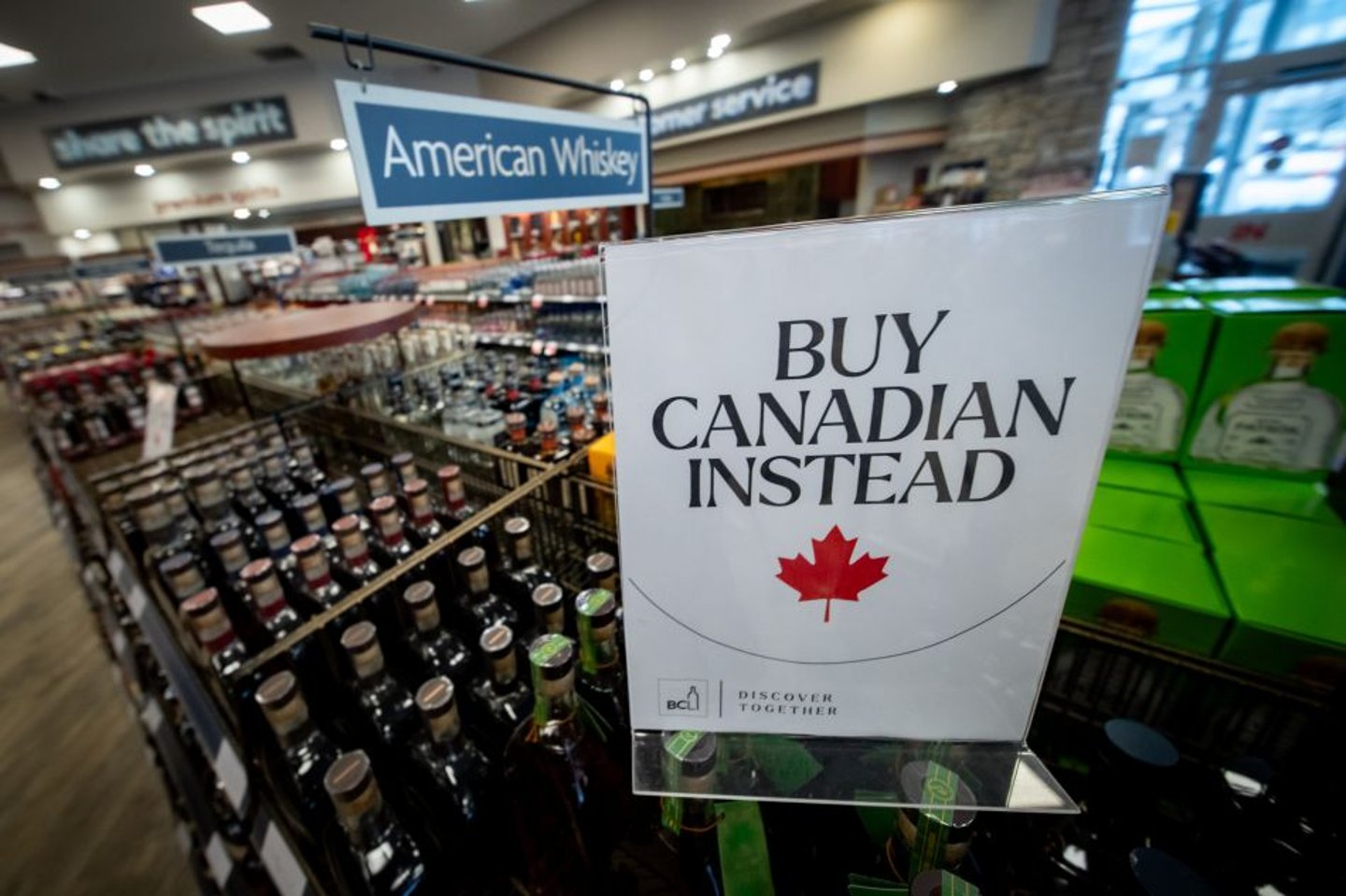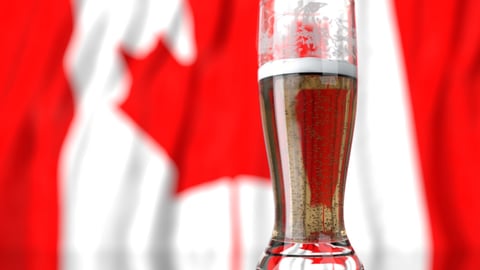As tariff reality hits, Canadian consumers becoming more patriotic
One might have expected that the sudden patriotic fervor that has gripped Canadians in the wake of the U.S. President Donald Trump’s trade war with Canada and the world would be a short-lived one.
Some said that Canadian elbows would soon bump into the ongoing reality of stretched household budgets and debt, along with other economic worries. That reality would make checking if a can of soup had a Maple Leaf logo secondary to trying to save a few dollars at the checkout counter. If the cheaper soup came from the U.S., then those few dollars saved would bring the elbows down very quickly.
Lightspeed Commerce decided to see if that was the case: is the sentiment “Buy Canadian” something temporary or is it one that is long lasting which will over time have a profound effect on the Canadian retail landscape.
In mid-March of this year, Lightspeed Commerce surveyed some 1,000 Canadians to gauge the sentiments when it came to shopping in this tariff and economic uncertainty, and how deep is the “Buy Canadian” sentiment.
“When the tariff conversations were starting to take place, it became our immediate priority to make sure we had all the information needed to support our customers on either side of the border and globally, knowing that this was likely going to play a role in how they engage with their customers,” says Dax Dasilva, CEO of Lightspeed Commerce. “This study helped us to understand the sentiment of Canadian shoppers and what their priorities were during this uncertainty.”
What the survey found was the “Buy Canadian” sentiment is not something that is fading. It is growing in momentum with 91% of those surveyed saying they are prioritizing Canadian products, 71% saying they are willing to pay more for them, and 73% are boycotting major U.S. retailers.
When asked if they may change their opinion about purchasing U.S.-made goods or shopping at U.S. retail operations if the tariffs either fail to materialize or are at some point lifted, 74% say they’d keep supporting Canadian products, strongly suggesting this buying shift is more than just a temporary response to the trade war.
One question that is often raised when it comes to the “Buy Canadian” mantra is what exactly does it mean to buy a good or service from a Canadian retailer? Being Canadian is a rather fluid concept. Does it mean that the product must be from a company that is wholly-owned and operated by Canadians and in Canada? Or that a company employs Canadians or uses Canadian-sourced materials, even if the company itself is owned by an international firm or conglomerate? There are plenty of Canadian companies that are in fact owned by international firms whose head offices are overseas.
READ: 'Cut them off': Canadians angry, defiant as U.S. tariffs take effect
“This was a question we posed as well,” adds Dasilva. “There are several nuances as to what “Buying Canadian” may actually mean and it will vary from person to person. According to our data, the majority (72%) of Canadians define “Buy Canadian” as purchasing goods made in Canada from Canadian retailers.”
“That being said, 47% felt that companies that had a Canadian identity, like Tim Hortons for example, fell within the “Buy Canadian” scope; and 43% were willing to support Canadian made products from a retailer that may be U.S. or Internationally owned, like buying Canadian products at Walmart or Amazon,” he says.
“What’s clear is that Canadians are being more deliberate about their purchases and making a conscious decision to support Canadian-made products and retailers.”
Dasilva adds that their survey showed that with this sentiment in mind, Canadians are taking the time to understand the differences between products so they can ‘Buy Canadian’.
“The data found that 65% of respondents were reading labels and tags while shopping to determine what products to buy and to better understand where products were coming from,” he continues. “Forty-six per cent of respondents shared that they were actively researching what goods or stores they are comfortable shopping at given the new tariffs, showing that Canadians are doing their due diligence before heading out to stores and adjusting their shopping habits based on this new information.”
Still, the question remains, will Canadians continue to show their patriotic fervor when prices rise due to tariffs and pennies need to be saved on the household budget?
“Yes, like many other consumers, Canadians are feeling the pressure of rising prices, and affordability is still top of mind,” he says “But our data shows that the ‘Buy Canadian’ movement isn’t just a short-term reaction to the tariff situation. Three-quarters of Canadians say they’ll continue supporting Canadian-made products, even if the trade war ends.”
“More and more, consumers are being deliberate about their purchases, whether it’s supporting sustainable products or buying local. While price will always factor into purchasing decisions, the commitment we’re seeing suggests many Canadians are prepared to balance cost with values, to a reasonable extent,” he continues. “Our survey found most Canadians were willing to pay an extra 5-10% to support local products, but that willingness starts to drop off once you go over that 10% threshold. This presents an important opportunity for Canadian retailers and businesses to meet that demand by making locally produced goods more visible, competitive, and accessible.”




